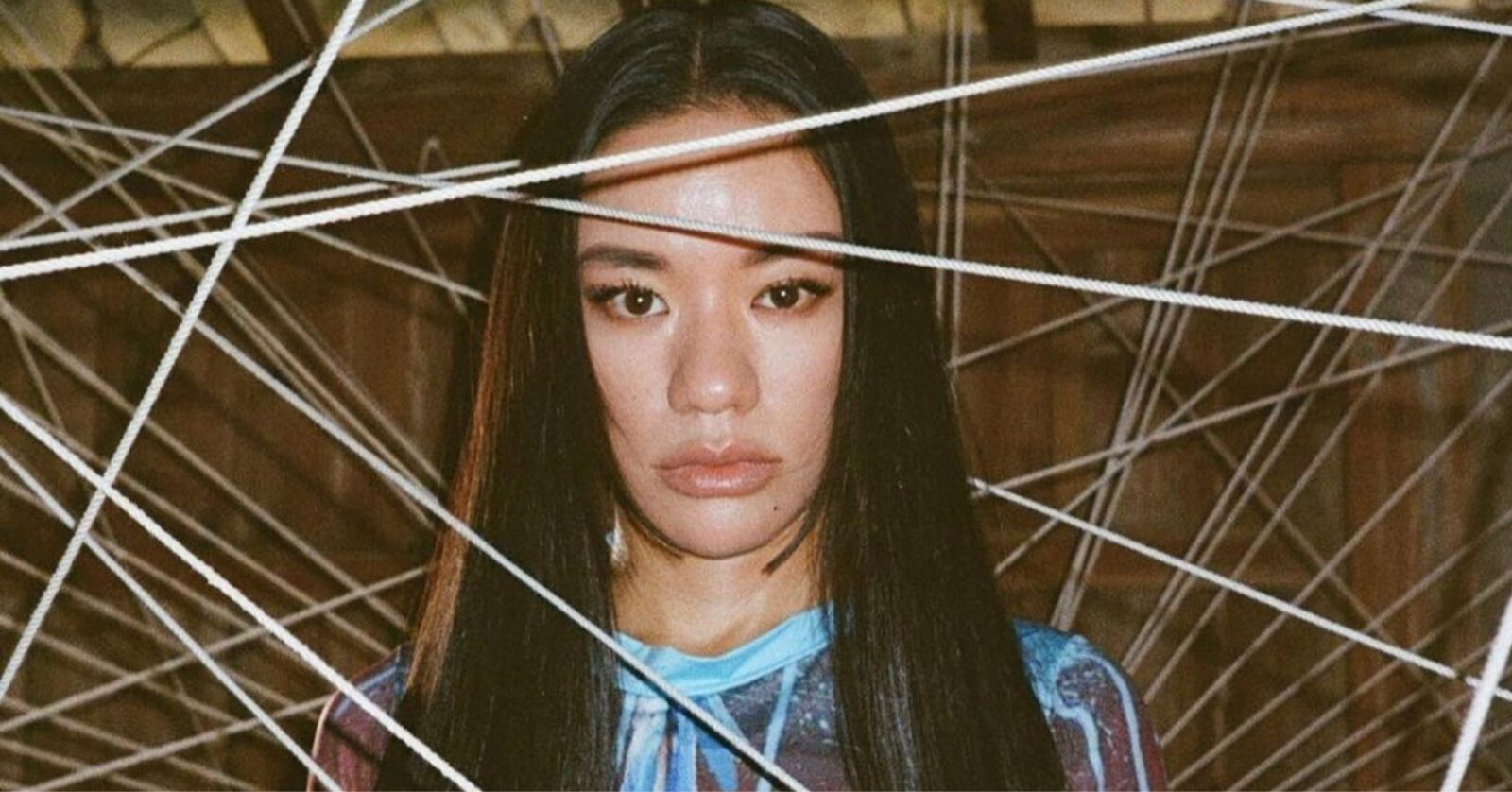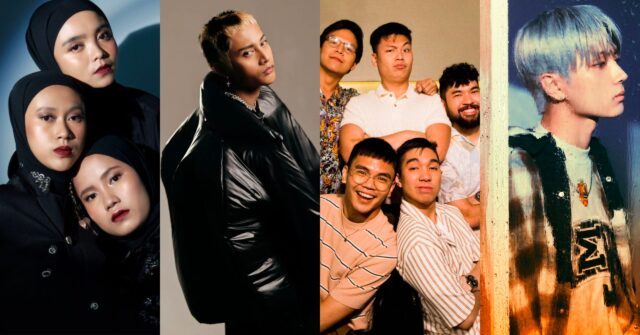Japanese rapper Awich is a force to be reckoned with.
Crowned as the queen of Japan hip-hop, Akiko Urasaki has been rapping since she was 14 years old. Seven albums and over a million monthly listeners later, she continues to marry her Okinawan heritage and American hip-hop to create music that champions female empowerment and her history.
In her latest record, THE UNION, she grapples with vulnerability — touching on the pressures of her career, motherhood, and the loss of her late husband, who was tragically murdered shortly after their daughter was born.
Awich sat down with Billboard Philippines to open up about her album, the Okinawan music scene, and the power of hip-hop to be a medium for vulnerability.
Billboard Philippines: Can you go behind the scenes of what it was like making THE UNION?
Awich: It was very difficult because I was touring. I had two tours at the same time. I [had also] released a girls’ rapper EP (United Queens)…so much was going on. I still wanted to release a body of work that represents what I’ve been doing and what I’ve been feeling. Before my arena show, I wanted something for people to listen to and have the feeling of what this show is gonna be about.
The show was gonna be about THE UNION, a continuing story from the Queendom [her album released in 2022]. Making the songs, working with different producers, lining up all these collaborators and features…it was a lot of work in a limited amount of time. It was hard. On top of that, the title song…it was pulling out pain from my heart. These are things that I really don’t want to face; I’m confused about this position right now, all these songs on the stage. This shows the powerful side of me, [but] I wanted to show the people this process, [that] it’s not always so strong or so fierce.
In the song itself, you also tackle the highs, lows, and pressures that come with your career. What is it about hip-hop that helps you embrace vulnerability in your music?
Hip-hop is a genre that allows you to speak your story in depth, in specific ways. You can really break down your story like its a movie or a novel. That allows me to really show [myself]. Sometimes people don’t use it as a medium for vulnerability, but I use it to tell a story about [that]. It leads to true strength, to me. I wanna show that to the people listening to me, especially my daughter. You can’t just ignore the weak part and be strong. The only way is to embrace [vulnerability]. That’s the only way to be strong, to be courageous.
In the song’s music video, you pay tribute to your daughter as well as your late husband. What was the inspiration for that creative direction in the video?
I worked with this director named Hideto Hotta, he’s a director I work with a lot. He’s very sincere in learning the emotion, my thought process of the song. [I also] tell him the elements I want, [like] Okinawan traditional songs, [which is] where the sound comes from. Then, he’ll go up and pick up 10 books about Okinawan sound, music, and culture. After that, he puts together a treatment. The elements I wanted [are] definitely Okinawan traditional music and dance, and also culture, and also me tied up to all kinds of bondage, dilemmas, conflicts, doubt, and breaking away from it. That’s what the concept was.
You’ve previously talked about how you’re proud to be Okinawan. How do you think Okinawa’s culture and history influences your music? How about for the Okinawan music scene in general?
It influences me a lot, to my core. It stays in my core. Ever since I was a child, I loved Okinawa. The way I encountered hip-hop was in Okinawa, we were so influenced by the [United States] because of the concentration of US military bases. That’s why I embraced hip-hop in the first place. Way before that, I was into the nature and very different traditions and culture [of Okinawa] than mainland Japan. I was fascinated by it ever since I was a kid.
For the longest time, I always wanted to use the Okinawan language or use Okinawan music, so I was trying to figure out my own style. It took me a long time, but now I’m finally getting back to it. Now it’s like…the question is not whether it works or not, it’s how strong your love is for it. If you’re really passionate about it and pursue your expression with it, then people will get fascinated by it.
How would you describe the Okinawan music scene and how it was influenced by the island’s history?
I love Okinawan traditional music. we talk about history; we talk about the raw environment of our existence. For example, of course there’s love songs, but people [also] talk about peace and [World War 2]. There’s a song [that goes], “we are just a leftover of the naval bomb.” [It talks about how] we lost our mom, our dad, our brother…we’re just eating plants off the streets.
We sing it with so much entertainment. It’s such a danceable song but the contents are so raw, so deep. I don’t know why they do that. Maybe it’s because the events are so impactful and people are mindful to write it into entertainment so that they can live their own lives.
I really admire that and I want to be a part of that. It’s probably like that everywhere, but to me, studying their music, studying my ancestors’ music, it’s deepening my sense to [capture] what I should deliver right now.
Do you have any plans of performing around Southeast Asia soon? What countries do you want to visit and why?
I have a plan to go to Cambodia this month. I have a collaboration with Vannda [Cambodian rapper], we’re going to shoot a music video and I’m going to appear on his TV show. I wanna visit Thailand, Indonesia…I want to go to the Philippines [because] one of the rappers in my crew [YENTOWN] is Filipino [MonyHorse]…I was telling him, we gotta do a show there. He’s doing really great in Tokyo. [He’s] gotta show his greatness [in the Philippines].
Listen to THE UNION by Awich below.


